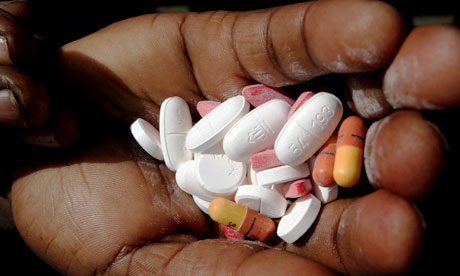Rutashubanyuma
JF-Expert Member
- Sep 24, 2010
- 219,470
- 911,173
Wapenzi wengi haswa dada zetu huogopa au kumwonea haya mpenzi wao kumwambia hawana imani naye kuhusiana na vvu kwa hiyo kumshurutisha avae soksi kabla ya majambozi...........................................hili la khofu limechangia sana kwa vvu kushika kasi kama kijinga cha moto kuwashwa ndani ya petroli....................lakini khabari njema imepatikana juu ya hiki kidonge kimoja kwa kutwa ambacho majaribio yalifanyika kwa nchi za majirani zetu ambacho kimebainika kina uwezo wa kupunguza maambukizi ya vijirusi au vvu....................na hivyo kuokoa maisha.....................wataalamu wasema ya kuwa anayemtilia mashaka au mwenye mpenzi mwathirika na vvu aweza kumeza kimyakimya hata bila ya kumjulisha mpenziwe kama anaona au asije kuonekana ya kuwa anamnyanyapaa...................kwa kufanya hivyo ataweza kulinda afya yake.....................na ya uzao wake............
Angalizo hapo ni kuwa madhara halisi ya tiba hii bado yanaendelea kufanyiwa utafiti..............hivyo swali langu aendelee na kavukavu, ameze kidonge hiki au ashinikize mambo yote ni kwa soksi?
Soma habari hii kwa ufafanuzi zaidi:
Daily pill can prevent HIV infection
Angalizo hapo ni kuwa madhara halisi ya tiba hii bado yanaendelea kufanyiwa utafiti..............hivyo swali langu aendelee na kavukavu, ameze kidonge hiki au ashinikize mambo yote ni kwa soksi?
Soma habari hii kwa ufafanuzi zaidi:
Daily pill can prevent HIV infection
